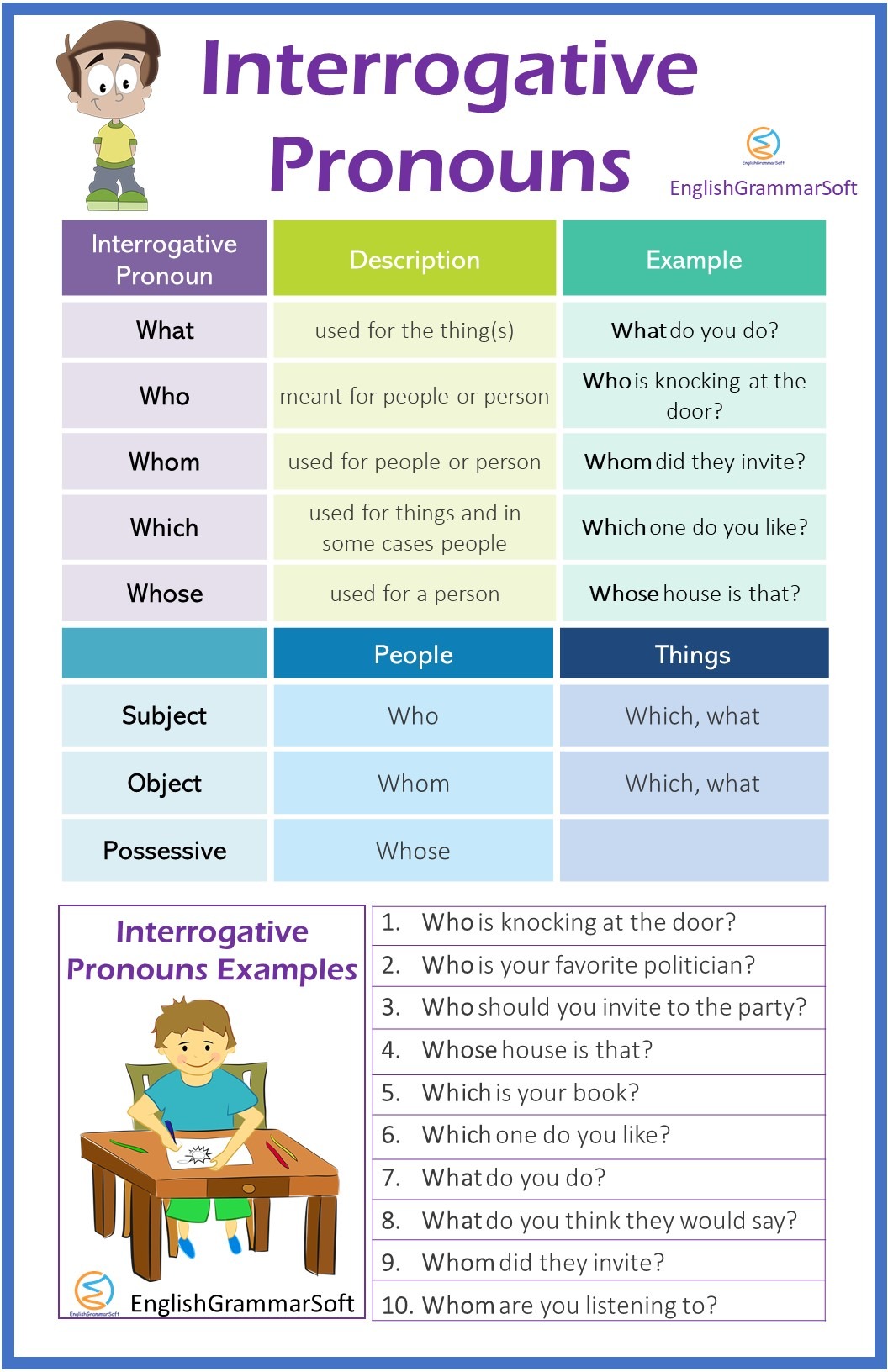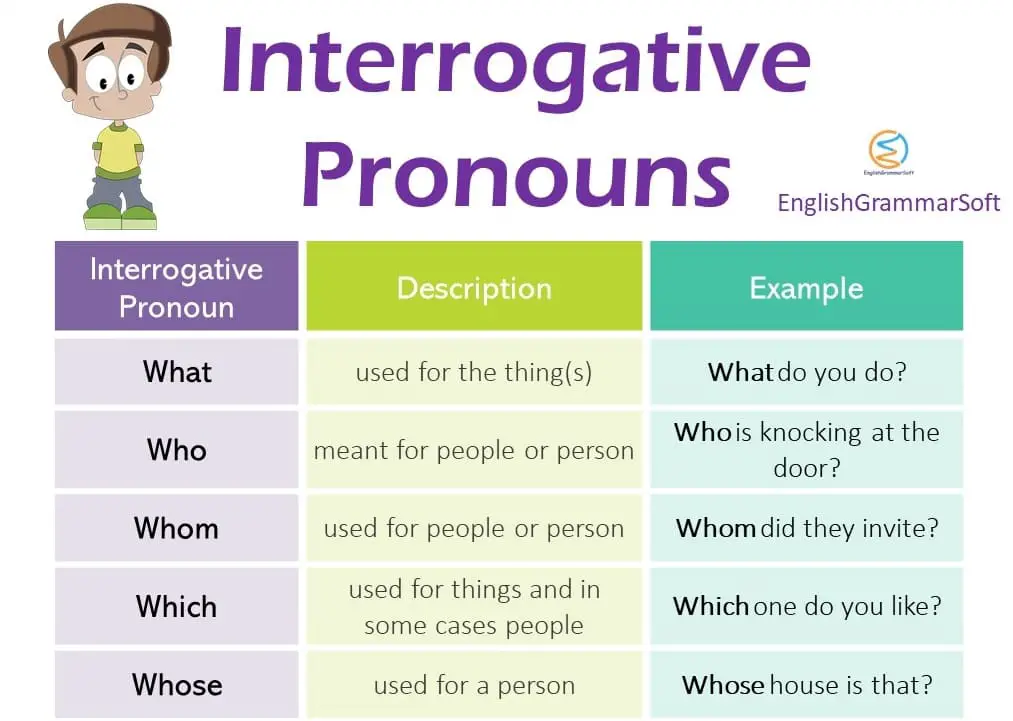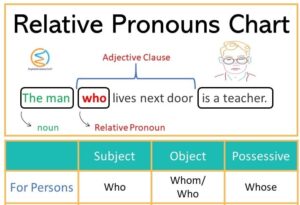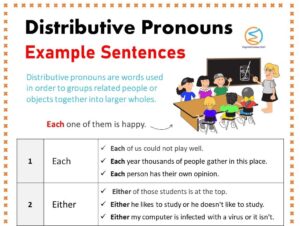Interrogative Pronouns Examples and Chart
What is an interrogative pronoun?
Interrogative pronouns introduce questions. This type of pronoun always used at the start of the sentence. For example, what, which, who, whom whose, why. An interrogative pronoun always comes before the noun or pronoun to which it refers.
There are two kinds of interrogative pronouns:
- Those that refer to the speaker (e.g. who, which, what) and
- Those that refer to the listener (e.g. whom, whose, what).
Interrogative pronouns refer to people, places, or things whose identities are unknown or are being questioned. The interrogative pronouns are who, whom, whose, which, what, and whose.
- What — used for the thing(s)
- Who — meant for people or person
- Whom — used for people or person
- Which — used for things and in some cases people
- Whose — used for a person
10 Examples of Interrogative Pronouns
- Who is knocking at the door?
- Who is your favorite politician?
- Who should you invite to the party?
- Whose house is that?
- Which is your book?
- Which one do you like?
- What do you do?
- What do you think they would say?
- Whom did they invite?
- Whom are you listening to?
Interrogative Pronoun Chart
To make the things clear, here is the chart of interrogative pronouns.
| People | Things | |
| Subject | Who | Which, what |
| Object | Whom | Which, what |
| Possessive | Whose |

Interrogative Pronoun using -ever
Some interrogative pronouns are formed using ‘-ever’.
- Whoever
- Whosoever
- Whatever
- Whatsoever
- Whichever
- Whichsoever
- Whomever
- Whosever
Interrogative Pronouns Examples using “-ever”
- Aside from the obvious whatsoever factor, this is one of those situations that is hard to put into words and just has to be experienced.
- Wherever she goes and whoever she speaks to, she feels his eyes upon her.
- She felt his eyes upon her wherever she went and whomever she was speaking to.
- Whomever you still mourn, they are soon to be forgotten.
- You can now commemorate whomever you still mourn.
- Whoever you currently have, I can use them.
- Whomsoever you find will be happy to work with us.
- He’ll protect his family in whatever world they’re in.
- Whosoever shall break the law must have consequences.
- Whose tongue is clear has a pure heart?
- Whose laptop is this?
- And whoever has this trust, for him there is no uncertainty.
- Whosoever works hard will succeed.
- Whosever these keys belong to, I’ll take them.
- Whosever you are, I’m giving you my email for the next time you want to talk.
Interrogative Pronoun VS Relative Pronoun
There is a slight difference between an interrogative pronoun and a relative pronoun. The relative pronoun always comes in the middle of a sentence whereas an interrogative pronoun comes at first in the sentence.
Examples
- Who is playing in the ground? (interrogative pronoun)
- The train in which we traveled was a fast one. (relative pronoun)
Further Reading






![Personal Pronouns [Chart, Examples & 5 Types]](https://englishgrammarsoft.com/wp-content/uploads/2021/06/Personal-Pronouns-Chart-Examples-5-Types-min-300x242.jpg)